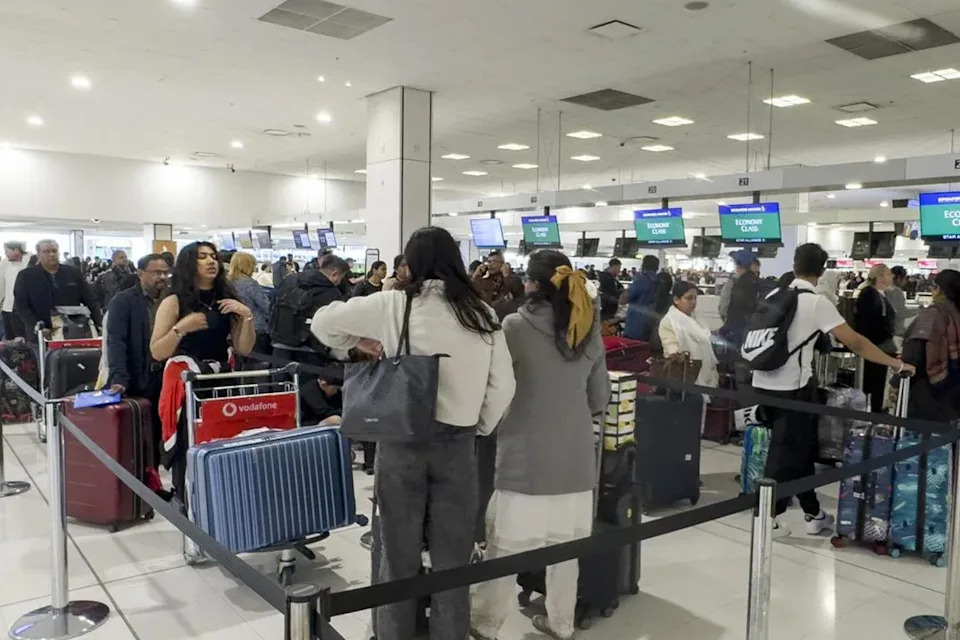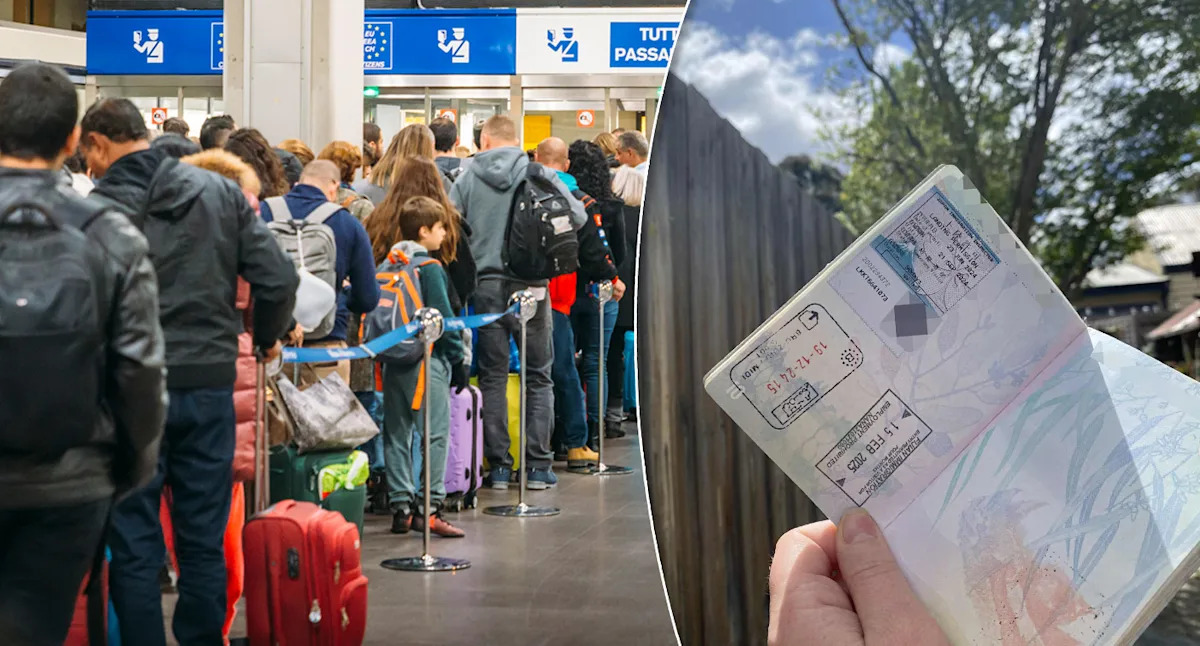Australians are being warned that a coveted detail in their passports could soon be a “thing of the past” as new international travel rules are rolled out from tomorrow.
New automated entry and exit gates will be introduced over the next six months across many European countries to further streamline border security processes. This means Australians will have their biometric information, like fingerprints and photos, taken by digital kiosks, and can expect longer wait times when flying into any of the 29 countries as authorities get the system up and running.
The Schengen area, which includes all of the European Union, as well as Iceland, Norway, Switzerland and Liechtenstein, will adopt the change from October 12.
The rollout will likely mean the humble passport stamp will be lost as countries charge forward with automated technology to tighten border security. The hope of one day having a passport filled to the brim with memories will no longer be a reality, travel expert Quentin Long told Yahoo News.
“Instead of having a grumpy person ask you why you’re coming into the country and stamping your passport, you’ll be at a kiosk that asks you the same questions quickly,” Long said.
“A lot of people are lamenting the fact that you will no longer get your passport stamped, and the idea of having one of those passports that has all your memories stamped into them will probably be a thing of the past. They’ll disappear… They’ll end up in a museum one day, or we’ll show our grandkids, going ‘this is what it used to be like’.”

From October 12, travellers entering the European Union Schengen area for the first time will be required to provide their fingerprints, a photograph and answer questions. Picture: NewsWire/Simon Bullard
Authorities will hold onto travellers’ details for three years
When entering or exiting through the network, travellers will have digital records created and this will be held by authorities for three years. When visitors return to the Schengen area within that time, they will only need to provide their fingerprint or photograph when crossing the border.
“They’re saying it will streamline and make it more efficient getting into Europe in the future, as records will be there for three years,” Long explained. “The system is initially expected to cause, like any change, slight delays as people get used to the system.”
European countries not included in the Schengen area are: Albania, Armenia, Belarus, Bosnia and Herzegovina, Cyprus, Georgia, Ireland, Kosovo, Moldova, Montenegro, North Macedonia, Russia, Serbia, Türkiye, Ukraine and the United Kingdom.
Visitors to the Schengen area can only stay up to 90 days in every 180 days, and the period is attached to a person, not a passport. Overstayers can be fined, detained or banned from entering the EU.
With NewsWire
Do you have a story tip? Email: newsroomau@yahoonews.com.
You can also follow us on Facebook, Instagram, TikTok, Twitter and YouTube.


